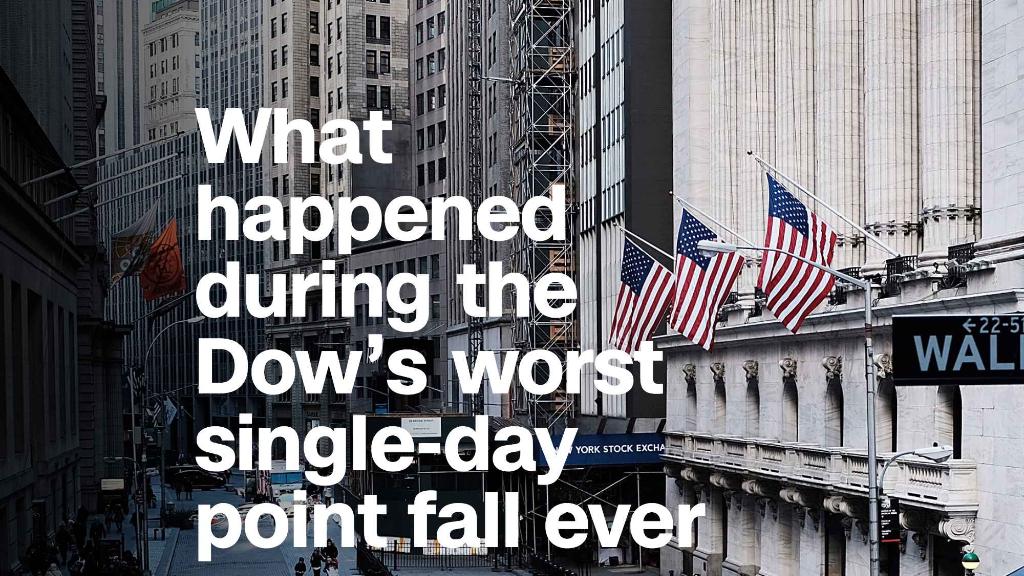
Stocks are getting pummeled at the moment.
The Dow fell more than 1,800 points over two sessions on Friday and Monday. Its 4.6% plunge on Monday was its biggest since August 2011, during the European debt crisis.
The rout in U.S. stocks is also hitting markets around the world. Major indexes in Japan, Hong Kong and Australia all dropped sharply on Tuesday morning.
Here's what's driving the big global sell-off:
Related: Asian stocks plunge after bloodbath on Wall Street
1. Concerns that the Fed will raise rates
Stocks have been rising steadily since the election in part because the economy is so strong. Unemployment is historically low, and there are more open jobs than people to fill them.
Companies are starting to pay workers more to retain existing employees and attract new hires. Businesses will eventually have to raise prices on the stuff they sell to afford their growing payrolls. In economics, that's called inflation.
Though the economy has been growing steadily for almost nine years, inflation has remained stubbornly and mysteriously low. The Federal Reserve combats inflation by raising its interest rates. The central bank has been unable to significantly raise its interest rates over the past decade, fearing it could stymie the economic recovery and perhaps cause prices to fall.
The Fed planned on raising interest rates slowly this year -- just three times in 2018. But if inflation picks up, the Fed could raise rates more often and more steeply than it had planned.
Related: Dow plunges 1,175 -- worst point decline in history
2. Rising interest rates
When the Fed raises rates, the cost of borrowing money increases. That means companies have to pay more for their loans, which cuts into corporate profits. It also means Americans will pay more for mortgages and loans.
Another reason the stock market has risen so much over the past year has been the steady growth in corporate profits. Companies are healthy, and investors have rewarded them by pushing up their stock prices.
When interest rates rise sharply, stocks often fall. Investors worry that businesses' profit parade will slow down.
3. Worries about the bond market
Stocks have also been on a tear because they have been one of the only investments with a decent return. U.S. Treasury bond yields have been so low that many stock dividends are paying better.
But stocks are a higher-risk investment than bonds, which are backed by the United States Treasury. If bond yields start to rise, investors will want to take some of their money out of stocks and put it into safer bonds.
Sure enough, bond yields hit a four-year high Friday. (They pulled back a bit on Monday.) The recent tax bill has forced the Treasury to borrow more money, which will put more bonds into play. A supply glut could devalue bonds. Prices and yields move in opposite directions, and bond buyers will want a higher yield (and lower price) to make it worth their investment.
Inflation is bad for bonds, too. If borrowing costs increase, bond investors will want more return -- a higher yield.
Attractive yields on a safer investment have made stocks suddenly less attractive.
4. Too far, too fast
Stocks have been rising pretty much in a straight line since November 2016, and that's not exactly healthy. Stock market analysts believe the stock market is long overdue for a 5% pullback or even a 10% correction.
A cooling-off period would be a good thing. It would make stocks cheaper and more attractive to investors, especially if the underlying companies are healthy, cranking out strong sales and profits.
The market finally began to come down to earth -- just a bit -- this week, and investors wonder whether this is the beginning of a correction. There could be a little groupthink taking place in the downturn.


